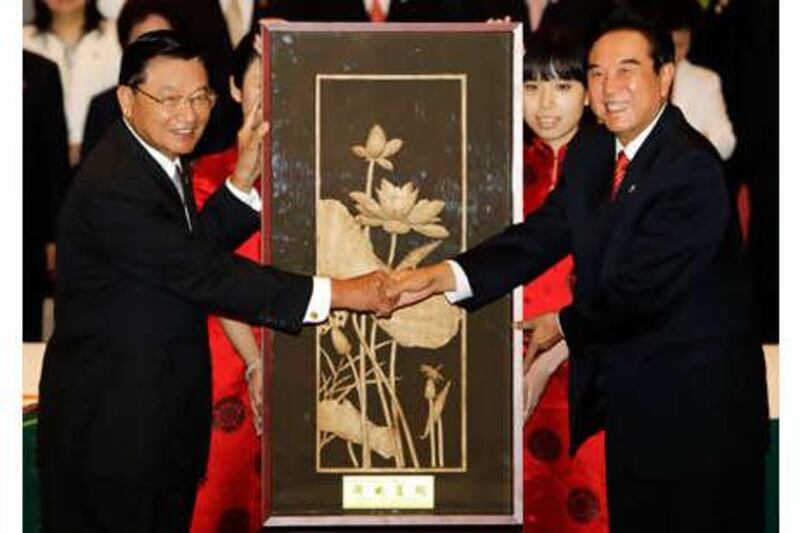China and Taiwan have signed a tariff-slashing trade pact that boosts economic ties and further eases political tensions six decades after the rivals split amid civil war. Beijing hopes the deal, signed live on on state television, can lead to political accommodation. Taiwan is looking for the tighter economic links to keep the island from being marginalised as China's global clout grows. The pact will end tariffs on hundreds of products traded across the strait and allow Taiwanese firms access to 11 service sectors on the mainland, including banking, accounting, insurance and hospitals. It should boost bilateral trade already totaling about US$110 billion (Dh404bn) a year: some US$80bn in goods flowing to China, and US$30bn to Taiwan.
The deal was signed in the southern Chinese city of Chongqing - a venue with an evocative history. The communist leader Mao Zedong and the Nationalist president Chiang Kai-shek tried to negotiate a truce there after World War II - but failed. The two sides then resumed the civil war that ultimately saw Chiang Kai-shek's government driven from the mainland to Taiwan in 1949. For decades, relations across the 160 kilometre wide Taiwan Strait have been strained and remain a potential military flash point. China has 1,300 missiles aimed at Taiwanese targets and, while Taiwan has cut its defence budget as a proportion of GDP in the last two years, it retains a well-equipped air force as a deterrent.
"This is a critical moment in the development of long-term relations. We should seize the opportunity to work together and build mutual trust," Chiang Pin-kung, the chairman of Taiwan's semiofficial Straits Exchange Foundation, said ahead of the signing. His Beijing counterpart, Chen Yunlin, called it an agreement of "equal consultation and mutual benefits." Formally known as the Economic Cooperation Framework Agreement, the pact marks a political victory for both governments.
*AP





